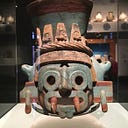I cannot tell if you are malicious or ill informed. You need to understand what's going on more clearly.
It starts in 1957.
In 1957 what did we really know about the Earth’s climate system and climate history?
The answer is, next to nothing. We knew next to nothing in 1957.
Regular measurements using standard instruments really started only in the mid-nineteenth century around 1840. A global network of weather stations using standardized equipment wasn’t established until 1880.
When they looked at the temperature record between 1880 and 1958 what they saw was a world that had been a lot colder having a heat spike in the 30’s and early 40’s. Then rapidly cooling down. Followed by wo smaller heat spikes, and two cold snaps.
Which way would you say the climate was headed, what would you have predicted?
Keep in mind, they knew that the climate could get much colder. The world was just coming out of a 500 year chill. They had accounts and records of the Thames freezing solid enough in Winter for a festival to be held on it.
The last one had been in 1814. That’s how recently the planet had been about 1C colder. That influenced their thinking.
They had been born in the early 20th century. They grew up in a much colder, harsher climate. Grandpa’s stories about how harsh the winter’s were when he was a boy, weren’t bullshit. The winters were harsher then.
The planet seemed to be warming up but the swings in temperature indicated a state of disequilibrium. So, was it going to get warmer or was it going to go back to being colder. They really wanted to know the answer to this.
They pursued the answer in a four pronged approach.
1. They went to Greenland and took ice cores.
2. They started a global program of paleontology and geology to map out the Earth’s ancient climate history.
3. They started measuring and monitoring every aspect of the planet they could think of. To gather data on every aspect of the Earth’s climate system.
4. They started models of the global climate system.
So, that they would able to take the information they gathered and answer the question. Was it going to get hotter, colder, or stabilize at the current level?
The first thing we learned came from the Greenland Ice Cores. It seemed to show that there was a regular pattern to Ice Ages.
It looks like Ice Ages happen roughly every 100,000 years.
This finding was seized on as proof of a theory put forth in the 1920’s by Serbian geophysicist and astronomer Milutin Milanković. In the 1920s, he hypothesized that variations in eccentricity, axial tilt, and precession combined to result in cyclical variations in the intra-annual and latitudinal distribution of solar radiation at the Earth’s surface, and that this orbital forcing strongly influenced the Earth’s climatic patterns.
The first analysis of the Greenland Ice Cores popularized the theory that the Climate System was driven by cycles in the Earth’s orbit, “Milankovitch Cycles”.
A lot of people believed that it meant another Ice Age was about to start.
The first interpretation of the climate data being gathered, was that we were in a long term cooling cycle. Any warming being felt, was temporary. In the decades to come, it was going to get colder.
You still run into Climate Deniers making this argument. It influenced a whole genertyation.
It’s a perfect example of why first impressions can be misleading. Milankovitch Cycles are real. They clearly have a real effect on the Earth’s Climate. But, that effect is subtle and easily overridden by the effect of CO2 concentrations on the atmosphere.
We didn’t know that in 1976. We didn’t have any data on the paleo-record of CO2 levels.
Now we do.
What we now know, is the "climate history" of the Earth for the last 500my. What we now know, is that this is the coldest the Earth has been in 30my.
The only reason Milankovitch Cycles are significant is that CO2 levels have been so low and the planet has been so cold. Once the CO2 levels go up. Milankovitch cycles become meaningless.
That's what we have learned since 1976.
If you want more detail. See my article on this topic. You really should try and get real information on Climate Science. A lot has changed since 1976.
The Crisis Report — 07 (part one of two)
